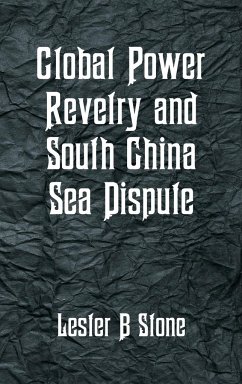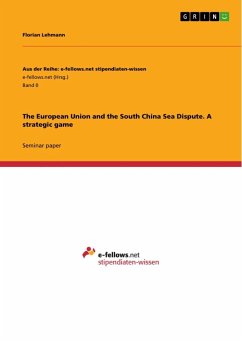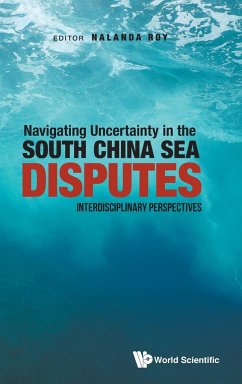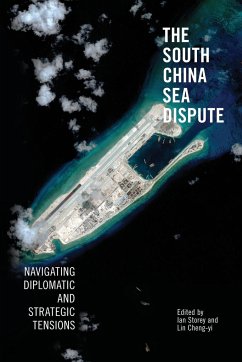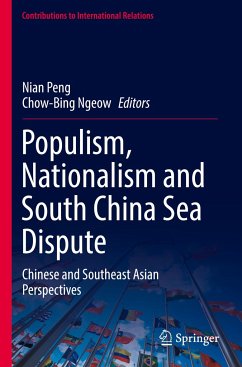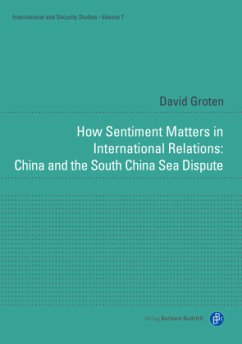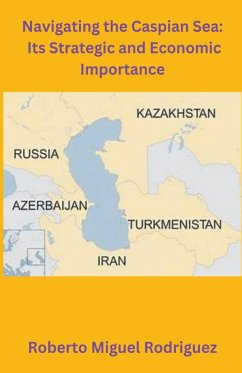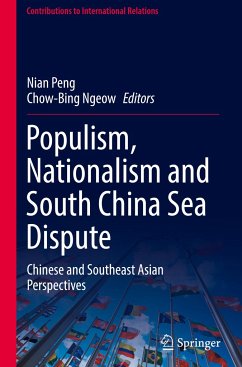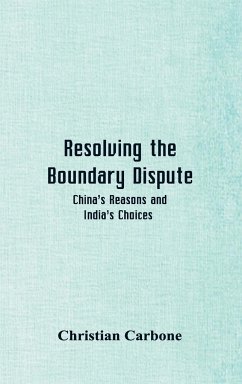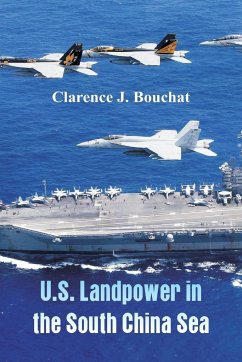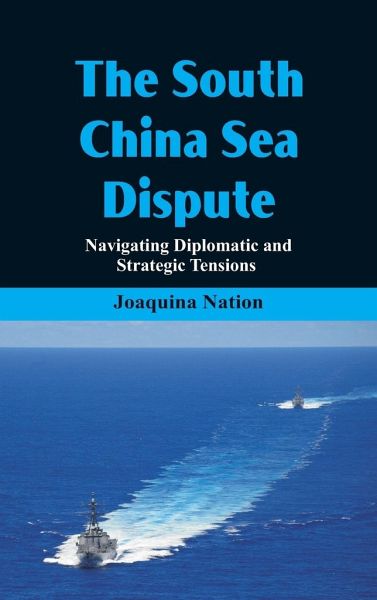
The South China Sea- Dispute Navigating Diplomatic and Strategic Tensions
Versandkostenfrei!
Versandfertig in 1-2 Wochen
39,99 €
inkl. MwSt.

PAYBACK Punkte
20 °P sammeln!
The South China Sea is a critical commercial gateway for a significant portion of the world’s merchant shipping, and hence is an important economic and strategic sub-region of the Indo-Pacific. It is also the site of several complex territorial disputes that have been the cause of conflict and tension within the region and throughout the Indo-Pacific. Territorial spats over the waters and islands of the South China Sea have roiled relations between China and countries like Philippines, Vietnam, Taiwan, Malaysia, and Brunei in recent years, and tensions continue to escalate in the wake of U.S...
The South China Sea is a critical commercial gateway for a significant portion of the world’s merchant shipping, and hence is an important economic and strategic sub-region of the Indo-Pacific. It is also the site of several complex territorial disputes that have been the cause of conflict and tension within the region and throughout the Indo-Pacific. Territorial spats over the waters and islands of the South China Sea have roiled relations between China and countries like Philippines, Vietnam, Taiwan, Malaysia, and Brunei in recent years, and tensions continue to escalate in the wake of U.S. President Barack Obama’s announced "pivot" of focus to the region. A handful of islands comprise the epicenter of the territorial dispute, making up an area known as the "cow’s tongue" that spans roughly the entire South China Sea. The South China Sea have propelled the dispute to the top of the Asia-Pacific’s security agenda. Fuelled by rising nationalism over ownership of disputed atolls, growing competition over natural resources, strident assertions of their maritime rights by China and the Southeast Asian Claimants, the rapid modernization of regional armed forces and worsening geopolitical rivalries among the Great Powers, the South China Sea will remain an area of diplomatic wrangling and potential conflict for the foreseeable future. Competing claims of territorial sovereignty over islands and smaller features in the South China Sea have been a longstanding source of tension and distrust in the region. The United Nations Convention on the Law of the Sea (UNCLOS), which was concluded in 1982 and came into force in 1994, established a legal framework intended to balance the economic and security interests of coastal states with those of seafaring nations. China, today, is the focus of discussions due to its actions, particularly in the South China Sea, where territorial disputes have affected the stability of the region. The book contends that China’s actions have not contributed to promoting confidence amongst its smaller neighbours who cannot flex their muscles in any dispute.





